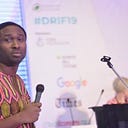“Where are you” vs “How are you”?
The Surveillance vs Development debate on Digital IDs in Africa
With 850 million people in the world without official identity documentation — a fact which impacts their quality of life in ways such as restricting access to education, healthcare, social grants, and financial services, several international developmental organizations such as the World Bank have championed increasing access to identification as a bridge to sound developmental outcomes. This need is more urgent in Africa, which hosts some of the world’s poorest and least developed countries. It is no surprise then that many African countries have implemented or are currently implementing identification projects in different formats. Perhaps the most common implementation of this effort is the digital ID, which in some quarters is perceived as means of bypassing institutional weaknesses in the national bureaucracies which issue paper-based identification documents.
Nevertheless, the very nature of a digital identity, which can permit unrestricted surveillance of its holders across time and space, and the political nuances which implicate development in Africa, have spun a debate on the real utility of IDs as a tool for development on the continent. In lay terms, this debate is expressed as a question, “Where are you?” vs “How are you”? That is, are digital IDs in Africa merely tools for surveillance in the hands of increasingly authoritarian African regimes, or can they really become tools for transformative development? My objective here is not to answer the question either way, instead to present two developmental dilemmas which have historically hamstrung development in Africa, and leave you to decide what impact they might have on the implementation of digital IDs.

Source: Pixabay
First is the reality that in Africa, the state is the gatekeeper. Whereas in some other regions of the world, pursuits in private business and the professions are the channels through which most elite seek access to resources; and people do not necessarily need to be close to the state to get ahead in their private pursuits (because of the ethos of impersonality and meritocracy instilled in the distribution of certain public goods); in Africa the converse is usually true. The state is perceived as the fountain head, the trough through which all economic flows emanate from. These flows are also often decided in personalistic terms based on patron-client relationships. Thus, in Africa, perhaps to a greater degree than other regions of the world, the state is besieged by intense elite contests for access and control over resources (state offices, contracts, loans, licenses etc) which might not be distributed most efficiently.
By extension then, digital identity projects, usually dangled as big tender contracts by states, are usually sites of intense elite contests (over economic rents), which in turn impacts the prospects for meaningful democracy and control over a state’s revenues — which both depend on the integrity of the identity register. This is a recipe for all sorts of malfeasance and corruption, and deriving from this, less than efficient implementations of identity projects on which so much developmental outcomes hinge on. For example, Nigeria’s digital identity projects have been linked with accounts of corruption demonstrating collusion between local and international actors. This same corruption impacts other government offices and the delivery of the public services which they administer.
Secondly, in Africa, government statistical capacity is weak and fledgling. The bureaucracies collating and crunching development statistics (e.g. for the economy, health, education, urban renewal etc) are not as well-staffed or funded as those in more developed regions of the world. On the basis of the argument that sound development outcomes derive from a foundation of strong statistical capacity which properly captures developmental data necessary for planning, it is improbable that in this context sustainable developmental outcomes are achievable. In some African countries digital ID projects are probably among the best well-run bureaucracies, islands within oceans of other substandard government services. In some authoritarian country contexts this efficiency is solely based on their role as tools for security surveillance and control of populations. But smart IDs are meaningless in the hands of an unhealthy, poor and uneducated/under-educated population.
So, is Africa big on surveillance for security as against surveillance for development? Whatever side of the surveillance vs development debate you are on, it is especially important to stress that countries which successfully implement digital IDs but fail in the provision of other developmental outcomes like health and education cannot be successful [see my dissertation which explores aspects of the exclusionary impacts of digital IDs in a marginalized urban environment]. From the perspective of the Sustainable Development Goals (SDGs), implementing SDG 16.9 (on IDs) while lagging on other SDGs lead to poor developmental outcomes. Only by placing digital IDs within a broader, whole-of-society developmental program can Africa succeed.
